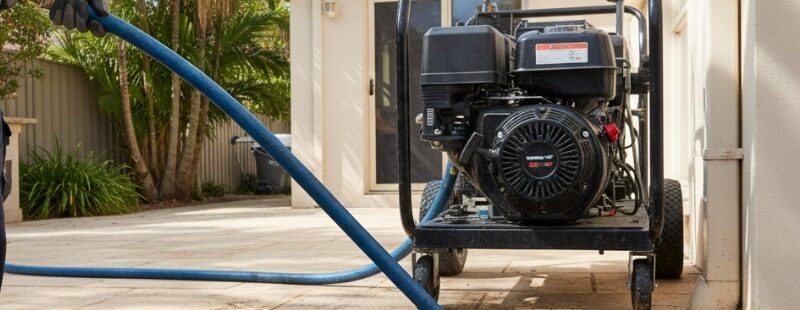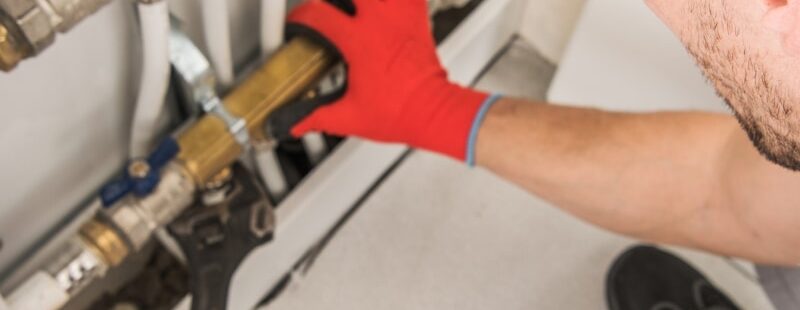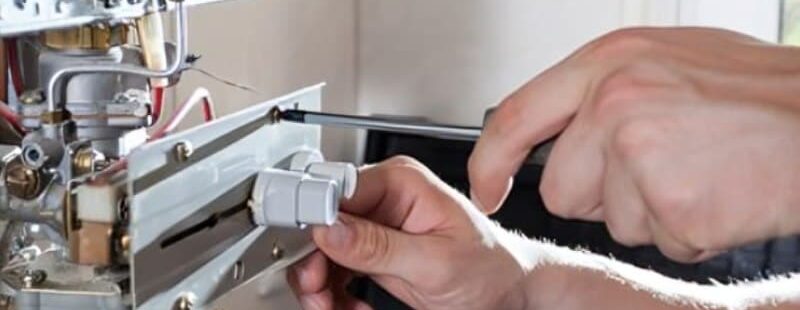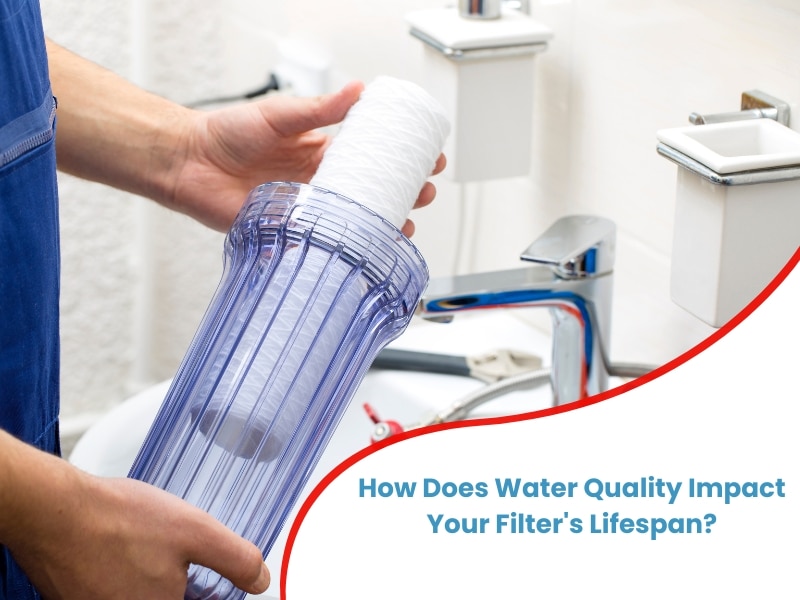
How Does Water Quality Impact Your Filters Lifespan?
Water quality plays a critical role in determining the effectiveness and longevity of your water filter. The cleaner the water, the longer your filter will last. However, various contaminants and water characteristics can accelerate filter wear and tear, leading to more frequent replacements and diminished performance. Understanding how water quality impacts your filter lifespan is essential for ensuring that your filter operates at peak efficiency, saving you time and money in the long run.
What is water filter lifespan, and why does it matter?
The lifespan of a water filter refers to how long it can effectively filter water before it needs to be replaced. Over time, filters become clogged with contaminants, reducing their ability to purify water properly. Knowing when to change your filter can prevent health risks associated with the consumption of impure water.
Key points to consider:
- Filter capacity: Filters are designed to handle a particular volume of water. Once they reach this limit, their ability to purify diminishes.
- Water usage: The more water you filter, the quicker your filter reaches the end of its lifespan.
- Type of filter: Different filters (e.g. activated carbon, reverse osmosis) have varying lifespans depending on their target contaminants.
- Maintenance: Regular cleaning can extend the life of a filter, but only to a certain point.
Effective water quality management plays a crucial role in maximising the lifespan of your water filter. Ensuring compliance with Australian drinking water guidelines can help you maintain high water quality standards.
Why does water quality impact your filter’s longevity?
Your water quality can directly affect how quickly your water filter reaches its capacity. Poor water quality with a high concentration of minerals, chemicals, or microorganisms can clog up your filter faster, making it less effective over time.
Factors that influence filter lifespan:
- High mineral content (hard water): Mineral buildup can block the filter pores, reducing its ability to purify water.
- Chemical contaminants: Excess chlorine, pesticides, or heavy metals can degrade filter materials, speeding up wear and tear.
- Microbial contamination: Bacteria or viruses may overload the filter, causing it to become less effective.
- Sediment and particles: Water with a high sediment content can quickly clog the filter, especially if it is not replaced regularly.
When should you replace your water filter based on water quality?
The water quality in your area directly determines how often you need to replace your filter. Poor water quality can shorten the lifespan of your filter, requiring more frequent changes.
Indicators that it’s time to replace your filter:
- Turbid or cloudy water: If your filter can’t effectively clear up cloudy water, it’s time for a replacement.
- Bad taste or odour: A sudden change in taste or smell, such as bad smells from your water filter, could indicate that your filter is dirty and no longer working efficiently.
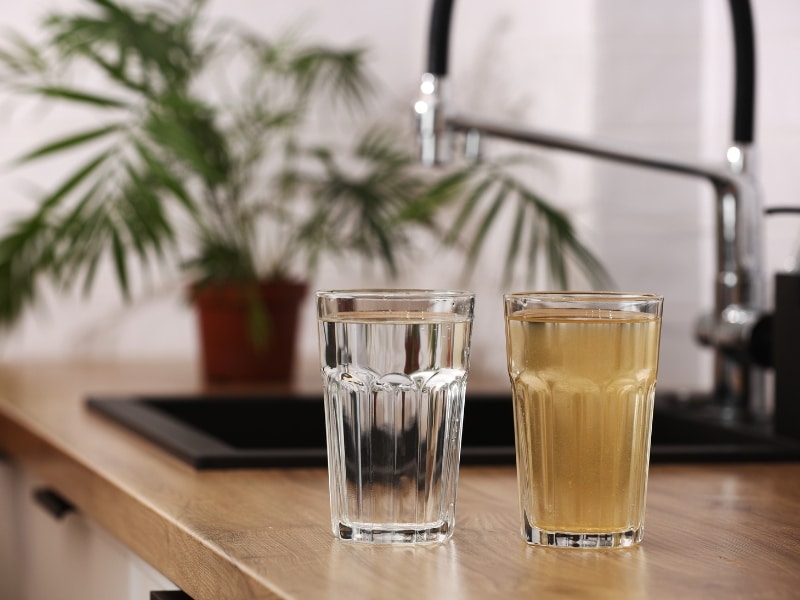
- Slower water flow: A noticeable decrease in water flow could be due to clogging, suggesting the filter is nearing the end of its life.
- Visible damage or wear: Any cracks, tears, or visible damage to the filter indicate that it is no longer fit for use.
- Water contamination: If your water shows signs of contamination despite using a filter, it’s time to replace it.
Can contaminated water decrease the efficiency of your water filter?
Contaminated water can severely affect the performance of your filter, making it less efficient at removing harmful substances. Filters that are regularly exposed to high levels of contaminants will degrade faster, causing them to lose their ability to purify water effectively.
How contaminants impact filter efficiency:
- Clogging: High sediment, rust, or dirt particles can block the filter, reducing water flow.
- Chemical degradation: Chemicals like chlorine, fluoride, and heavy metals can deteriorate the materials used in filters, leading to quicker wear.
- Bacterial growth: Filters exposed to bacterial contamination can become breeding grounds for harmful microorganisms, making the filter itself a source of contamination.
- Mineral buildup: Hard water with excessive minerals like calcium and magnesium can lead to scaling and clogging inside the filter.
Is routine maintenance enough to offset the effects of water quality on filters?
Routine maintenance is important, but it is not always enough to counteract the effects of poor water quality. While cleaning and flushing a filter can extend its lifespan, certain water qualities require more frequent replacements. Extending filter life with better water quality can reduce the strain on your system and improve its overall performance.
Maintenance tips to prolong filter life:
- Regular cleaning: Periodically cleaning your filter can remove surface contaminants and prevent clogging.
- Replace Filter cartridges: Depending on the water quality, you may need to change your filter cartridges more frequently.
- Monitor water quality: Testing your water regularly can help identify issues early, allowing you to address them before they impact your filter.
- Use Pre-filters: In areas with awful water quality, using a pre-filter can help reduce the load on your main filter.
Who needs to be most aware of the impact of water quality on filter functionality?
Water quality directly affects how well and how long filters perform. Certain groups should pay closer attention to these impacts to ensure effective filtration.
[wptb id=24646]
Which types of water filters are most resistant to poor water quality?
Not all filters are created equal, and some are better suited for areas with poor water quality. Choosing the right type of filter can help you extend its lifespan.
Most resistant filter types:
- Reverse osmosis filters: Highly effective at removing a wide range of contaminants, including heavy metals and minerals.
- Activated carbon filters: Great for removing chlorine, volatile organic compounds (VOCs), and other chemicals.
- Ultraviolet (UV) filters: Effective at killing bacteria and viruses, particularly in areas with microbial contamination.
- Sediment filters: Ideal for homes with water that contains large amounts of dirt, rust, or sand.
How can you improve water quality to extend the lifespan of your filter?
Enhancing water quality in your home or business can help prolong the lifespan of your water filter. A well-maintained water system supports whole house filter installation and lifespan, maximising the effectiveness of your filtration system. Various strategies can improve water quality and ease the pressure on your filter.
Ways to improve water quality:
- Install a pre-filter: Catching large particles before the water reaches your main filter can prolong its life.
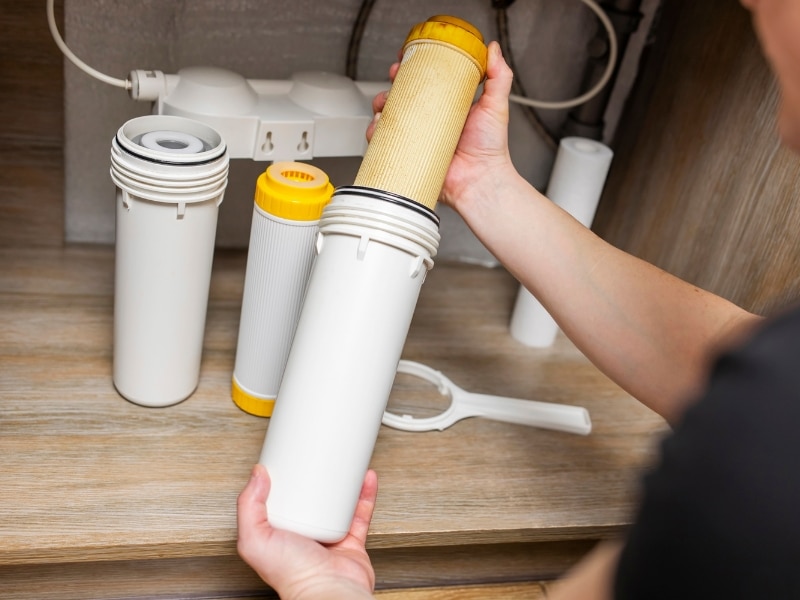
- Use a water softener: In hard water areas, a water softener can reduce mineral buildup and help protect your filter.
- Get regular water tests: Testing your water for contaminants will help you identify issues early and take preventive action.
- Fix leaks and plumbing issues: Poor plumbing can allow sediment and contaminants to enter your water supply.
Conclusion
Water quality plays a vital role in determining how long your water filter will last. Contaminated water can significantly reduce its effectiveness, leading to the need for more frequent replacements. By understanding the impact of water quality, performing regular maintenance, and selecting the right filter for your specific needs, you can ensure your filter remains efficient for as long as possible.
Whether you need a new filter installed, an existing one replaced, or expert advice on improving your water quality, we provide reliable and affordable plumbing services across Sydney. Learn how Apex Plumbing Services can assist with water quality issues and filtration system maintenance.


